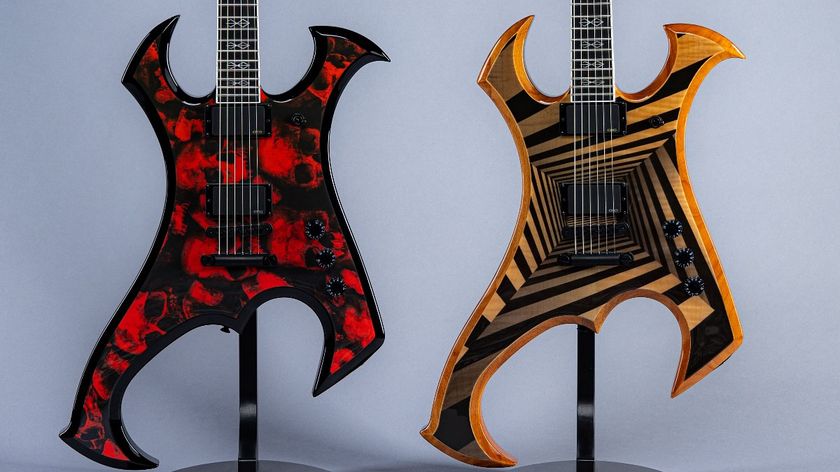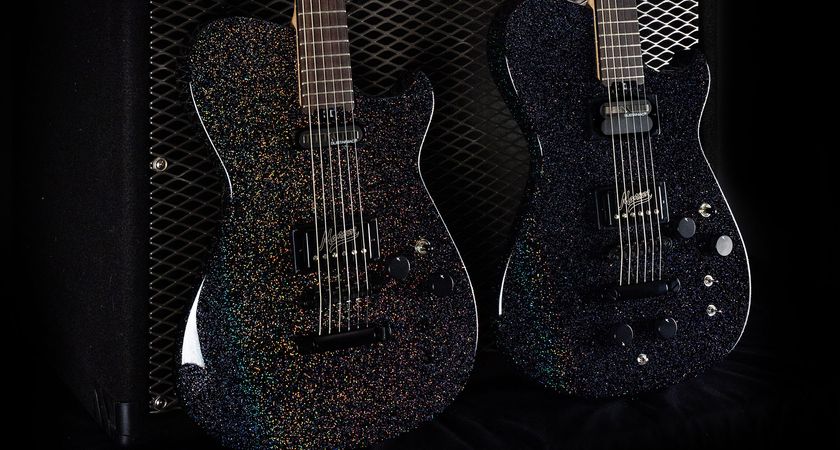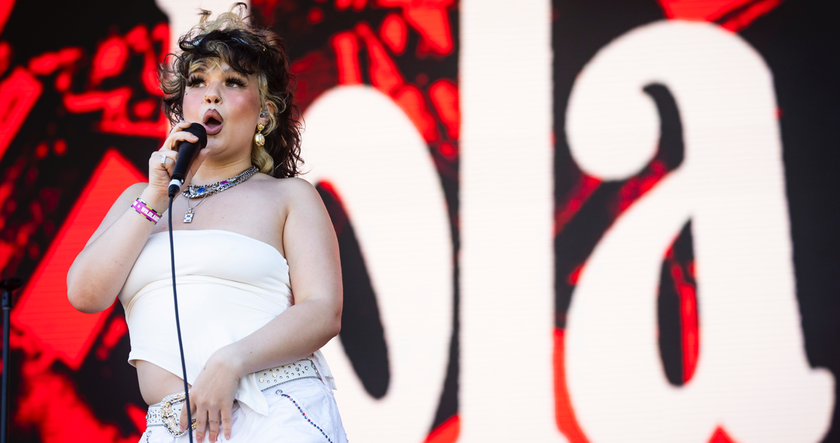Justice on the making of D.A.N.C.E: "It was meant to be a tribute to Michael Jackson"
Way back in 2007, Future Music interviewed two rising stars backstage in a very sweaty London club...
Interviewed in 2007 by Future Music while backstage at one of the famous Ed Banger shows in London, here's a rare insight into how Justice used to work and how they created their smash hit D.A.N.C.E...
Justice Interview from Future Music, June 2007
Justice are the production duo Gaspard Augé and Xavier de Rosnay. They've been kicking out some of the best music in Paris and sprinkling their remix fairydust over a multitude of other artists.
Signed to Ed Banger, their biggest record was a remix of Simian's We Are Your Friends, which landed them a number one spot in summer 2006 and an MTV music award.
Their latest single D.A.N.C.E is set to fire them back into the charts with its more commercial disco edge. But don't think Justice are going soft. Flip the record to the B.E.A.T version on the B-side and you'll still hear the aggressive tones you're used to. We found out more when we grabbed Augé for a beer...
How do you and Xavier work together?
"We have a weird process in terms of making a record. We argue a lot. So for the new album we only ended up making 13 tracks and kept 12 - unlike most albums, which may have been filtered down from 40 or so tracks.
"We've been trying to find a balance between the disco edge of tracks such as our new single D.A.N.C.E. and tracks such as Waters Of Nazareth."
Get the MusicRadar Newsletter
Want all the hottest music and gear news, reviews, deals, features and more, direct to your inbox? Sign up here.
That's why there's the B.E.A.T. version.
"Yeah exactly, we wanted a really disco record but didn't want to lose the link to the previous Justice tracks."
How did you create D.A.N.C.E.?
"Well, it took a long time. It was a very ambitious project for us because we had to write the lyrics in English and find the singers. We used a children's choir in London and recorded it at Strongroom Studios.
"There was only two hours of rehearsals for the children before the recording. We purposely wanted something really fresh and naïve, so that's one reason we used the children's choir."
How did the rest of the track build around the vocal?
"Well, we took the recordings back to Paris and edited every word to make it fit exactly how we wanted it."
What about synths and sounds?
"When we did the first EP we used a lot of plug-ins such as the LinPlug Delta but now we're just using a Juno-106 to compose the tracks. Then we are replacing most parts with samples on one computer."
What do you sequence in?
"We use Cubase - version SX - and GarageBand. Really we don't want to use any other software. We are happy using Cubase and GarageBand."
How did the initial idea for D.A.N.C.E. start?
"We did the music first and then we wrote the lyrics. It's meant to be a tribute to Michael Jackson, so we thought it would be funny to have children singing the lyrics to the track and of course the 'Easy as ABC' references.
"We compose everything, replace individual parts, de-tune them and so on. The strings, for example, are chords we played and then replaced the MIDI with individual string samples. That's how the chord stabs ended up on the new single."
So what's next?
"There's the album called which is a balance of harder Justice tracks and more disco tracks. Remix-wise we're only remixing people we like at the moment - we had to turn people down while we were making the album, which was a shame."
Who's remixing D.A.N.C.E for you? Do you get to choose?
"Yeah, we chose. We have Alan Braxe doing a version and also a Smith 'n' Hack remix, which is a much more cut-up-style remix. So it's a good mixture for the single, we think."
Do you have a separate Justice studio?
"When we started we were just in our bedrooms, but now we rent a basement where we made the album. We've been in that basement for one year, that's why we're so pale!
"It's a simple set up, we have a pair of the Genelec 8030s for monitoring. We wanted the older ones, the square ones, because we think the 8030s are really ugly.
"We have a big analogue desk as well; a big Soundcraft - I forget the model number. It doesn't get used any more, though - we just do everything inside the computer in Cubase and GarageBand."


Future Music is the number one magazine for today's producers. Packed with technique and technology we'll help you make great new music. All-access artist interviews, in-depth gear reviews, essential production tutorials and much more. Every marvellous monthly edition features reliable reviews of the latest and greatest hardware and software technology and techniques, unparalleled advice, in-depth interviews, sensational free samples and so much more to improve the experience and outcome of your music-making.

“Crafted for the true metal enthusiast, this axe embodies the soul of legendary guitarist Zakk Wylde”: Paging all “shred warriors,” Wylde Audio’s Berzerker takes the shape of metal guitars to new extremes

“A high-spec instrument at a competitive price”: Sustainiac pickups, onboard Z.Vex Fuzz Factory circuits, a Night Sky Holosparkle finish? Manson lavishes Matt Bellamy-approved specs on updated M-Series electrics
Most Popular








